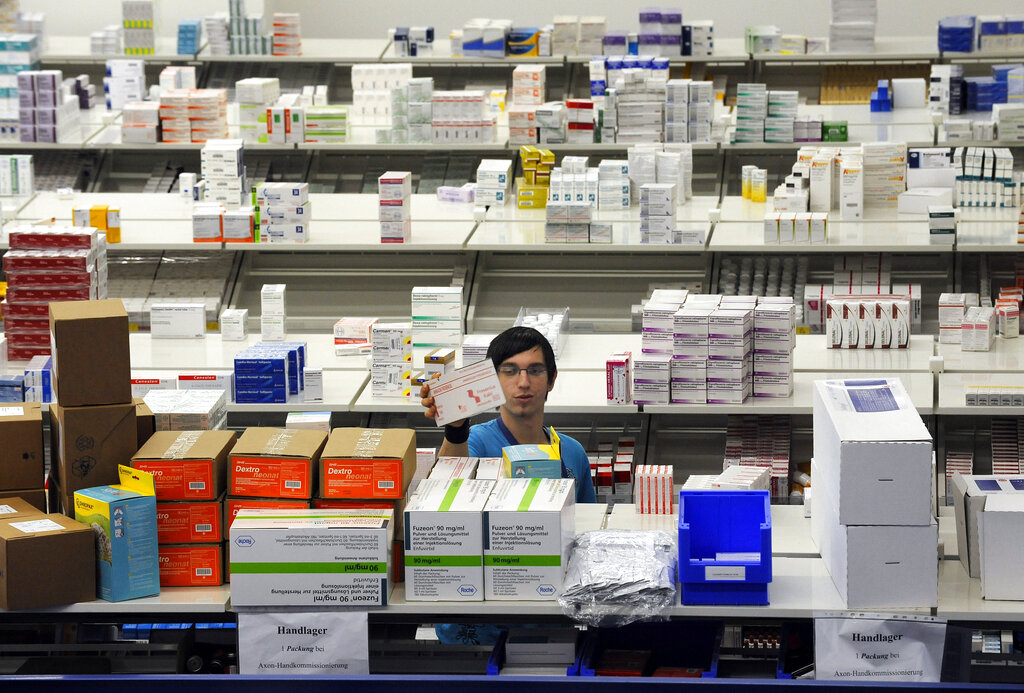Germany is already facing shortages of nearly 500 medicines. Now, Magyar Nemzet reports that the North Rhine-Westphalia Ministry of Health has confirmed concerns regarding sterile saline solutions, stating that hospitals, including university clinics, are receiving only half of what they need.
Thomas Preis, president of the local pharmacists’ association, emphasized that the shortage threatens not only hospitals but now also the care of outpatients. Due to the lack of saline solutions used during infusions and surgical interventions, surgeries have to be postponed, a concern also voiced by Matthias Blum, the director of a local hospital association.
Although hospitals try to come up with creative solutions to minimize the risk to patients and fresh deliveries at the start of each month help ease shortages, there are always scarcities going into the end of the month.
Meanwhile, the Federal Institute for Medicines and Medical Technology (BfArM) says it is working on increasing capacity for those medicines in short supply and hopes that the situation can improve by the end of the year. Until then, hospitals are forced to flexibly manage available resources to ensure care for all patients.
“Many pharmacies are already worried that they will not be able to supply their patients with the necessary medicines during the cold seasons,” Mathias Arnold, vice president of the German Pharmacist Association, told the press. He added that the true scale of the problem is likely to be much larger, as these figures only reflect voluntary reports from manufacturers.
The drugs involved range from antibiotics and insulins to pain relievers and sleeping pills.
The shortage is also a huge problem for doctors, as Susanne Johna, president of the Marburger Bund medical union, has already told the media. She said patients need to be switched to other drugs more often if their usual drug is not available — and that puts a strain on every patient’s body. Children’s medicines in particular can disappear from the shelves due to lack of supply during a severe cold wave, which occurred two years ago.
Since the raw materials of many medicines come from abroad, there may be disruptions in the supply chain due to political instability or natural disasters, causing delays in production. Other logistical problems during manufacturing can also affect availability.
Last year, Hungary’s National Pharmaceutical and Food Health Institute (OGYÉI) reported shortages of numerous medicines and vitamins in demand during flu season, including even ibuprofen or paracetamol. Various antibiotics and anti-anxiety drugs were also in short supply.
The current problem comes in the wake of damaged medical supply chains from the coronavirus pandemic, which was officially announced over just last year. The European University Hospital Alliance had warned in April 2020 that the growing demand for anesthetics, antibiotics, muscle relaxants, and drugs used to treat the coronavirus could exhaust supplies across Europe. Production was then also hit due to logistical issues during the shutdowns.






